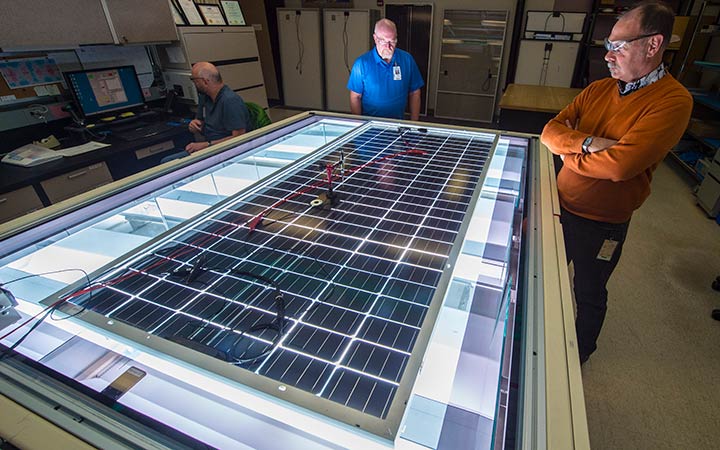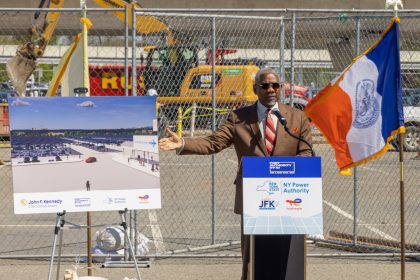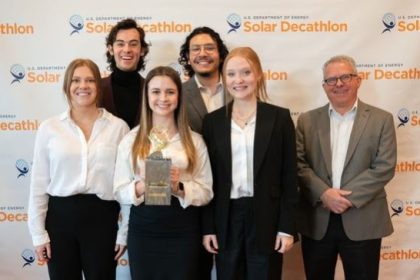Treasury Dept. Clarifies Labor Rules for Green Energy Tax Credits

WASHINGTON — The U.S. Treasury Department has unveiled its initial guidance on the labor requirements that employers must meet in order to qualify for bonus tax benefits for clean energy projects.
The guidance announced Tuesday will be published in the Federal Register on Wednesday.
In a press release department officials called the clarification of the rules “an important first step” toward making sure the Inflation Reduction Act supports both the growth of the clean energy industry and the quality jobs that will be needed to support it.”
“The historic Inflation Reduction Act that President Biden signed into law earlier this year puts in place tax incentives across the energy sector that will drive renewable energy investment and economic growth while ensuring the jobs created from this investment and growth are good-paying ones, with strong labor protections,” Treasury Secretary Janet Yellen said in a written statement.
“Workers should benefit from the clean energy economy they’re helping build. The guidance announced today provides firms greater clarity on how to meet the labor standards embedded in the bill to maximize the available tax credits,” she said.
The Inflation Reduction Act is the single most significant legislation to combat climate change in our nation’s history, investing a total of $369 billion to help build a clean energy economy.
Nearly three-quarters of that climate change investment — an estimated $270 billion — is delivered through tax incentives.
To maximize many of the available clean energy and climate tax incentives, firms need to pay workers a “prevailing wage” and employ a certain number of apprentices from registered apprenticeship programs.
The guidance released Tuesday states that both the prevailing wage and apprenticeship requirements apply to the following tax incentives:
- Advanced Energy Project Credit.
- Alternative Fuel Refueling Property Credit.
- Credit for Carbon Oxide Sequestration.
- Clean Fuel Production Credit.
- Credit for Production of Clean Hydrogen.
- Energy Efficient Commercial Buildings Deduction.
- Renewable Energy Production Tax Credit.
- Renewable Energy Property Investment Tax Credit.
The prevailing wage requirements also apply to the following tax incentives:
- New Energy Efficient Home Credit.
- Zero-Emission Nuclear Power Production Credit.
Under the law, these prevailing wage and apprenticeship requirements apply to qualifying facilities, projects, property or equipment for which construction begins 60 days or more after the Treasury publishes guidance.
The guidance that will be published in the Federal Register on Wednesday begins that 60-day “clock,” meaning that these requirements will apply to qualifying facilities, projects, property or equipment for which construction begins on or after Jan. 29, 2023.
The Treasury Department plans to issue additional proposed regulations with respect to these requirements in the coming months, its announcement said.
Dan can be reached at [email protected] and @DanMcCue

























